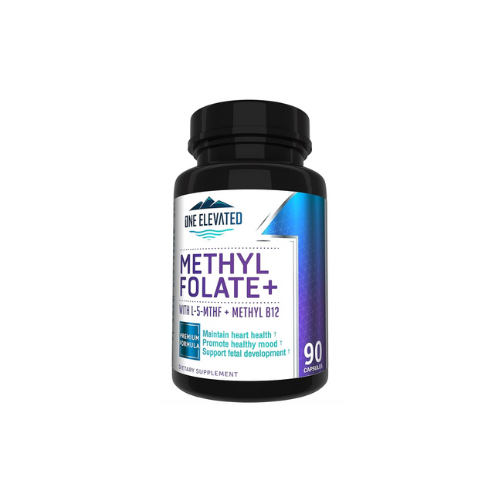The Carnivore Diet for People with Lupus
Analyzing Autoimmune Response and Health Outcomes
Understanding the relationship between diet and autoimmune conditions like lupus is paramount as individuals seek ways to manage symptoms and improve their health. The carnivore diet, characterized by an exclusive intake of animal products, is sometimes considered for its potential to reduce the inflammation associated with autoimmune diseases. Advocates of the carnivore diet suggest that removing plant-based foods can lead to a decrease in autoimmune responses due to the elimination of dietary triggers found in a more varied diet.
In the case of lupus, a chronic autoimmune condition where the body's immune system attacks its own tissues, managing diet is crucial. Lupus manifests in flares that can be exacerbated by certain foods, and while individual triggers can vary, the overarching goal is to reduce inflammation. The carnivore diet’s restriction to meats purportedly eliminates common inflammatory culprits such as gluten, lactose, and processed foods.
However, medical experts express concern over the nutritional completeness of the carnivore diet, noting that excluding all plant-based foods could result in deficiencies in essential nutrients. Balance is key in any dietary approach for autoimmune conditions, with an emphasis on supporting overall health while mitigating disease-specific risks. Scientific research continues to investigate the complex interplay between diet and autoimmune disease pathology, aiming to provide clear guidance for those impacted by conditions like lupus.
Understanding Lupus and Autoimmune Disease
In the context of autoimmune conditions, lupus is often central to discussions due to its complexity and the range of symptoms it presents. This section dives into the specifics of lupus, its risk factors and prevalence, and the nature of its primary form, systemic lupus erythematosus (SLE).
What Is Lupus
Lupus is a chronic autoimmune disease that occurs when the body's immune system attacks its own tissues and organs. This self-aggression can affect various body parts, including joints, skin, kidneys, blood cells, the heart, and lungs.
Risk Factors and Prevalence
Several risk factors have been identified in the development of lupus, including gender, age, and ethnicity. Women are more likely to develop lupus, particularly those of childbearing age. Furthermore, it is more common in individuals of African American, Hispanic, and Asian descent. The prevalence of lupus varies globally, but in the United States, it affects approximately 1.5 million people.
Symptoms of Lupus
Lupus symptoms can vary greatly from one person to another, and they may come and go. Common symptoms include:
Fatigue: A pervasive sense of exhaustion.
Joint pain: Swelling and discomfort in joints.
Rashes: Particularly the classic butterfly-shaped rash across the cheeks and nose.
Fever: Unexplained and persistent fevers are common.
Systemic Lupus Erythematosus (SLE)
SLE is the most common and comprehensive form of lupus. It is characterized by periods of illness, known as flares, and periods of remission when symptoms improve. Abnormalities in the immune system lead to increased production of autoantibodies which attack and damage the body’s own tissue.
The Carnivore Diet Explained
The Carnivore Diet emphasizes the consumption of animal products and eliminates plant-based foods, which is claimed to offer benefits for autoimmune conditions such as lupus.
Dietary Focus on Meat
The Carnivore Diet centers around the intake of meat as its core component, which includes beef, pork, chicken, fish, and other animal proteins. This diet prioritizes foods high in protein and fat while excluding other food groups. Fundamental to the diet is the belief that high meat consumption can support overall health, though this is a subject of debate within the medical community.
Exclusion of Plant-Based Foods
Contrary to diets that incorporate a variety of food groups, the Carnivore Diet excludes all plant-based foods – this means no vegetables, grains, fruits, or fiber is consumed. Supporters argue that plant foods are sources of inflammatory compounds, antinutrients, and sugars that they believe could exacerbate autoimmune issues.
Potential Benefits and Hype
The diet is often discussed with a great deal of hype around its potential benefits, particularly in the context of autoimmune diseases. Proponents claim that the Carnivore Diet reduces inflammation and immune responses due to its exclusion of plant defenses and potential irritants. However, these claims often rely heavily on anecdotal evidence rather than large-scale, peer-reviewed studies. It's important for individuals to consult with healthcare professionals when considering significant dietary changes, especially those with autoimmune conditions like lupus.
Impact on Immune System and Inflammation
This section examines the relationship between dietary patterns, specifically the carnivore diet, and their effects on the immune system and inflammation in the context of autoimmune disorders such as lupus.
The Role of Diet in Immune Response
Diet significantly influences the immune system's functionality. Specific food components can either trigger an adverse immune response or contribute to immune system regulation. In individuals with autoimmune conditions, foods that provoke an immune response can exacerbate symptoms. The carnivore diet, which consists exclusively of animal products, theoretically reduces exposure to certain plant-based compounds that could trigger immune reactivity.
Inflammation and Autoimmune Disorders
Autoimmune disorders are characterized by inappropriate immune responses that cause inflammation and tissue damage. Lupus, for instance, involves chronic inflammation that can affect various body parts. Diet is a modifiable factor that may influence systemic inflammation. The carnivore diet eliminates many foods known to contain inflammatory agents such as:
Antinutrients
Plant toxins
Carbohydrates
Added sugars
Fiber
FODMAPs
Vegetable oils
By excluding these components, proponents suggest that the carnivore diet may reduce the inflammation associated with autoimmune diseases.
Anti-Inflammatory Effects of Diets
An anti-inflammatory diet aims to minimize the intake of substances that can provoke inflammation while providing nutrients that support the body's anti-inflammatory processes. Theoretically, a carnivore diet could possess anti-inflammatory properties by focusing on:
High-quality proteins: Essential for tissue repair and immune function.
Low carbohydrate intake: Potentially reduces insulin spikes and consequently inflammation.
Exclusion of common irritants: Such as gluten or legumes, which can trigger inflammatory responses in sensitive individuals.
It is essential to recognize that individual responses to diet can vary. Personal health conditions should guide the evaluation of the carnivore diet's impact on autoimmune-related inflammation.
Nutritional Concerns with Carnivore Diet
The carnivore diet focuses exclusively on animal products and excludes plant-based foods, which can lead to several nutritional concerns that need to be carefully considered.
Risk of Nutrient Deficiencies
The absence of fruits, vegetables, and whole grains in a carnivore diet increases the risk of certain nutrient deficiencies. Vitamins and minerals typically abundant in a varied diet, such as vitamin C, vitamin E, folate, and magnesium, may not be sufficiently present in animal products. Essential fatty acids like omega-3s, predominantly found in fish and flaxseeds, may be limited depending on the range of animal foods consumed.
Vitamins: Limited to certain types (e.g., fat-soluble vitamins)
Minerals: Possible deficiencies in calcium, potassium
Fiber: Absent, potentially affecting digestive health
Essential Fatty Acids: May be inadequate unless diet includes variety of fish
Experience the convenience and savings of buying vitamin C, vitamin E, folate, magnesium, and omega-3 online!
Saturated Fat and Cholesterol Levels
The carnivore diet tends to be high in saturated fat and cholesterol due to the consumption of meat, especially if one opts for fattier cuts. Medical guidance generally suggests limiting saturated fat intake to reduce the risk of heart disease. Individuals must closely monitor their choices within the diet to mitigate potential health risks.
Saturated Fat: Common in red meat, dairy
Cholesterol: High levels in organ meats, eggs
Long-Term Health Risks
There is concern regarding the possible long-term health risks of a carnivore diet. The absence of fiber and certain vitamins, nutrients, and antioxidants found in plant-based food can contribute to the development of chronic conditions. Furthermore, a diet lacking in variety may not provide all the essential nutrients required for long-term health.
Fiber: Necessary for gut health, but not found in animal products
Antioxidants: Typically sourced from plants, absent in a carnivore diet
Chronic Conditions: Potential increased risk without balanced nutrition
Examining Clinical Studies and Research
This section takes a closer look at the scientific literature addressing the carnivore diet in the context of lupus management, highlighting its potential impacts and the need for ongoing research.
Systematic Review of Literature
A comprehensive systematic review of the literature on PubMed reveals that dietary strategies have a noted impact on autoimmune diseases like lupus. Current research indicates that certain diets may influence disease activity, although the scope and scale of these studies are varied.
Dietary Patterns and Lupus Management
Dietary recommendations for lupus often emphasize nutrient-rich foods that support overall health. While systematic data on the strict carnivore diet's efficacy for lupus is limited, it's known that dietary patterns can affect inflammation and immune response.
Emerging Evidence from Recent Studies
Recent clinical studies suggest some autoimmune patients experience symptomatic relief following a carnivore diet. However, these findings require further validation through randomized controlled trials to solidify dietary recommendations for those with lupus.
Dietary Alternatives and Modifications
Exploring dietary alternatives affords individuals with lupus an opportunity to tailor their nutrition in alignment with their health goals and personal responses to various foods. This section examines targeted dietary approaches and how they might impact autoimmune conditions.
Mediterranean Diet and Autoimmunity
The Mediterranean Diet, rich in fruits, vegetables, legumes, whole grains, and healthy fats like olive oil, is esteemed for its anti-inflammatory properties primarily due to high levels of polyphenols. Its emphasis on variety also supports a robust intake of antioxidants, which are suggested to modulate the immune response.
Legumes: Provide fiber and protein, beneficial for maintaining a healthy weight.
Whole Grains: Critical for sustained energy levels and gut health.
Nuts: A source of healthy fats and nutrients that may help reduce inflammation.
Incorporating Fish, Eggs, and Dairy
Including fish in the diet, especially types like salmon and mackerel, can be beneficial due to their high omega-3 fatty acid content, which may help alleviate symptoms associated with lupus.
Fish: Aim for 2-3 servings per week to harness anti-inflammatory benefits.
Egg: Contain vitamin D and essential amino acids, supporting overall health.
Dairy Products: Opt for low-fat varieties to contribute to calcium intake without excessive saturated fat.
Plant-Based Nutrients and Health Benefits
A diet that incorporates plant-based foods can deliver substantial health benefits, including a diverse array of vitamins, minerals, and polyphenols—compound known for their anti-inflammatory and antioxidant effects.
Fruits and Vegetables: Opt for a colorful assortment to maximize nutrient intake.
Legumes: Include a variety of beans and lentils for protein and fiber.
Whole Grains and Nuts: Both are important plant-based sources of nutrients and energy.
Lifestyle Factors and Holistic Health
In managing lupus, adopting a comprehensive approach to lifestyle choices plays a pivotal role. These holistic measures go beyond diet, encompassing stress management, exercise, and environmental considerations to support overall well-being.
Stress Management and Sleep
A person with lupus often faces increased stress levels, which can aggravate symptoms. It is critical for them to engage in stress-relieving activities such as meditation or yoga. Quality sleep, usually ranging from seven to nine hours per night, is essential as it helps the body to repair and regenerate, reducing the risk of lupus flare-ups.
Physical Activity and Weight Management
Moderate physical activity is recommended since it can decrease inflammation, aid in weight management, and lower the risk of cardiovascular disease, a common concern in those with lupus. Obesity is a known factor that contributes to the severity of lupus symptoms, so maintaining a healthy weight through a balanced diet and regular exercise is beneficial for disease management.
Environmental Factors and Lupus
People with lupus should be attentive to environmental factors that can trigger symptoms. Certain environmental agents, such as ultraviolet light, infections, and even some medications, can exacerbate the condition. Avoidance and preventive measures, such as using sunscreen and protective clothing, become vital components of managing the disease.
Carnivore Diet's Influence on Other Health Conditions
The Carnivore Diet has intersecting impacts on various health conditions, notably around cardiovascular health, metabolic disorders such as diabetes and obesity, and digestive well-being relating to the gut microbiome.
Impact on Cardiovascular Health
The Carnivore Diet, being high in animal fats and proteins, may lead to concerns regarding its impact on cardiovascular health. Some studies suggest that a diet high in red and processed meats can increase the risk of cardiovascular disease due to elevated levels of LDL cholesterol ("bad" cholesterol) and triglycerides. However, proponents argue that the diet's elimination of sugar and refined carbohydrates could potentially reduce inflammation, a key factor in heart disease.
Relation to Diabetes and Obesity
Individuals with diabetes or obesity might experience variable effects on their conditions when following a Carnivore Diet. The absence of carbohydrates leads to low levels of circulating insulin and glucose, which could aid in glycemic control and weight loss. Dr. Ovadia's clinical observations suggest potential benefits such as reversing or improving diabetes and obesity. Nonetheless, the long-term sustainability and effects of such a diet in diabetic or obese populations require more research.
Effect on Gut Microbiome and Digestion
A significant shift in diet composition like that with the Carnivore Diet can alter the gut microbiome. Diets high in animal protein and fat can decrease the diversity of bacteria in the gut. These changes may influence digestion and overall gut health, with some individuals reporting improvements in symptoms of inflammatory bowel disease. Contrastingly, a lack of fiber from plant sources could pose negative impacts on gut motility and the health of the microbiome.
Encounter varied evidence allows for a tentative understanding of the Carnivore Diet's role in addressing or potentially exacerbating other health conditions.
Conclusions and Expert Recommendations
In addressing the carnivore diet for individuals with lupus, it is crucial to integrate both research findings and clinical wisdom to guide dietary decisions.
Summarizing the Evidence
The carnivore diet, which comprises solely of animal products and excludes carbohydrates, poses potential risks and benefits for those with lupus. Research suggests that diets emphasizing anti-inflammatory properties may be more advantageous for autoimmune conditions. Yet, the exclusion of plant-based antioxidants and fibers in the carnivore diet could potentially counteract such benefits. Additionally, the high intake of red meat associated with the carnivore diet is often discouraged due to long-term health implications.
Guidelines for People with Lupus
Individuals with lupus are commonly advised to adhere to a balanced diet rich in fruits, vegetables, lean proteins, and whole grains. A lupus-friendly diet typically includes:
Proteins: Lean meats, poultry, fish, beans, nuts, and eggs.
Healthy fats: Olive oil, avocados, nuts, and fatty fish.
Complex carbohydrates: Fruits, vegetables, and whole grains.
Before considering the carnivore diet, patients should consult with a healthcare professional. A dietitian can provide tailored recommendations, and consistent monitoring of lupus activity is crucial if any dietary modifications are applied.
Final Thoughts on Carnivore Diet and Autoimmunity
While the carnivore diet may seem appealing for some, its impact on autoimmune diseases, including lupus, requires careful consideration. Current evidence does not strongly support the diet for autoimmune conditions and suggests that a varied diet might be more conducive to managing lupus symptoms. Thus, healthcare experts typically do not recommend the carnivore diet for lupus management. Further research is essential to clarify the role of such a diet in autoimmune diseases.











